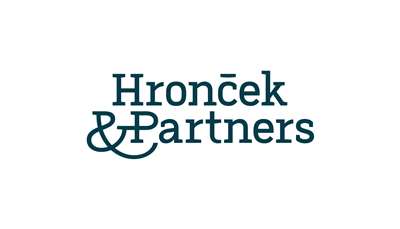In this article, we will try to explain why legal advice is an indispensable aid for interested parties, public procurers, and contractors in the public procurement process.

What is public procurement?
Public procurement is a process or sets out the legal rules and procedures for awarding contracts or concessions, or for organizing design contests. The main purpose of public procurement is to ensure the transparency, economy, and openness of public procurement procedures and to enable economic operators to offer their services and goods throughout the European Union. With a few exceptions, this is a highly formalized process, which results in restrictions on the contractual freedom of the entities concerned, both in terms of the method of selecting a contractual partner and in the process of adjusting the performance of contractual terms and conditions in the form of defining the conditions for concluding amendments to contracts or restrictions on the termination of contractual relationships.
Legislative regulation
The public procurement process is not only demanding in terms of facts, but also requires a relatively high level of knowledge of the relevant legislation in order to ensure compliance with the procedures and rules laid down by law. The basic legal framework for public procurement is Act No. 343/2015 Coll. on Public Procurement and on Amendments and Supplements to Certain Acts (hereinafter referred to as the “Public Procurement Act”). The Public Procurement Act can be considered a comprehensive and comprehensive legal regulation which is not easy to navigate, and therefore in practice it often happens that interested parties, as well as public procurers and contracting authorities, do not have sufficient knowledge of this Act, which is hardly surprising given its complexity. However, it should not be forgotten that knowledge of other areas of law is also necessary in the public procurement process, particularly commercial law, as the result of public procurement is the conclusion of a contract with the successful tenderer or tenderers.
Specific features of the public procurement process
In the case of awarding contracts, given the estimated value of the contract and the subsequent selection of the appropriate procedure, one of the main obligations of the contracting authority is to prepare tender documents, unless the contracting authority or the contracting entity is only awarding a low-value contract. Tender documents are, within the meaning of Section 42 of the Public Procurement Act, written, graphic or other documents containing a detailed definition of the subject matter of the contract, and the law places high demands on public contracting authorities in relation to the preparation of tender documents, as tender documents constitute an inherent basis for the entire, relatively complex process of procuring the subject of the contract.
Contracting authorities must include in the tender documents all circumstances relevant to the performance of the contract and the preparation of the tender, including, in particular, a description of the subject of the contract, which is the heart of the tender documents, as it defines the subject of the contract, which must be defined clearly, completely, and impartially on the basis of technical requirements, while the description of the subject matter of the contract must also comply with the principles of public procurement defined in Section 10(2), and this is where we come to the crux of the matter. The Public Procurement Act contains an explicit list of principles, including the principle of equal treatment, the principle of non-discrimination of economic operators, the principle of transparency, the principle of proportionality, and the principle of economy and efficiency, although this is not an exhaustive list of principles. Although these principles appear clear and understandable at first glance, the reality is that violations of the Public Procurement Act are very common, as it is difficult to determine the line between compliance with the law and violation of these principles, and thus of the law itself, in specific cases.
This is perhaps most evident in the setting of conditions for participation, which contracting authorities must also specify clearly and comprehensively in the tender documents so as to ensure, on the one hand, that the principles of economy, transparency, non-discrimination, proportionality, and equal treatment are upheld and, on the other hand, that that only economic operators who are able to perform the subject matter of the contract in the required quality and on time participate in public procurement. In practice, it is precisely the setting of conditions for participation within the meaning of Section 32 – personal status, Section 33 – financial and economic standing, and Section Section 34 – technical and professional competence – as one of the most demanding tasks for contracting authorities, causing complications, with our law firm most frequently confronted with questions regarding the conditions for participation from both tenderers and interested parties. This is related to another key moment in public procurement, which is the evaluation of submitted bids and the fulfillment of conditions for participation. Accurate, correct, and lawful definition of the conditions for participation and the criteria for evaluating bids will greatly facilitate the evaluation process, including dealing with the possible need to exclude certain bidders without violating the principles of public procurement or the relevant legal provisions. Just as legal advice can help contracting authorities to prepare tender documents and the conditions set out therein, and subsequently evaluate tenders and the fulfillment of the conditions for participation, it can also help tenderers to prepare their tenders in order to eliminate the risk that a tenderer's tender will be excluded due to non-fulfillment of a condition
As we indicated at the outset, the public procurement process is far from being just about public procurement law, as its outcome is a binding commitment.
Why is legal advice important in public procurement?
As we mentioned in the introduction, the public procurement process is not just about public procurement law, as its result is a binding legal relationship between the public procurer or contracting authority and the successful tenderer. The tender documents must also include a draft contract or framework agreement to be concluded at the end of the tender. However, the selection of the successful tenderer does not mean that the public procurement process is anywhere near complete, as the performance of the contract may take several years. In this context, it should be noted that, given the financial limits within the meaning of Section 5 of the Public Procurement Act and the relevant decrees issued each year by the Public Procurement Office, particularly in the case of below-threshold and above-threshold contracts, the financial commitments involved are not insignificant. However, it should not be assumed that in the case of low-value contracts, it is not necessary to prepare a high-quality draft contract. In everyday life, we leave the preparation, review, and commenting of contracts to lawyers, and in light of the above, this should be no different for public procurers and contracting authorities.
Last but not least, it is important to realize that the preparation of public procurement represents a significant administrative and time burden, both in the preparation of tender documents that take into account the above-mentioned specificities, as well as in the preparation of notices of public procurement or calls for tenders, which are published in the Official Journal of the European Union (in the case of above-threshold contracts) and in the Public Procurement Office's bulletin. calls for tenders, which are published in the Official Journal of the European Union (in the case of above-threshold contracts) and in the Public Procurement Office's bulletin. During this process, it is often necessary to explain certain facts stated in the tender documents which are not clear to individual tenderers or it is necessary to request clarification from the tenderers themselves, and finally, it is necessary to prepare various minutes, notices and other documents which the contracting authority and the contracting entity are required to keep for a period of 10 years and which must also be submitted to the Public Procurement Office for inspection. It is therefore not surprising that many larger public administration entities have separate departments dealing exclusively with public procurement, with the participation of lawyers. However, the preparation of bids by candidates and interested parties wishing to enter the procurement process also represents an administrative burden.
In view of the above, there is no doubt that legal advice in public procurement is not a “luxury” or a recommendation, but should be a matter of course in the preparation of public procurement and a prerequisite for its swift and smooth running, as it significantly reduces the likelihood of the public procurement process having to be repeated or of some of the tenderers lodging objections with the Public Procurement Office. Of course, public procurers and contracting authorities also face other complications, which do not need to be discussed here. Not to mention the risks arising from contractual legal relationships. The same can be said for the other side of the fence, namely interested parties and bidders who often feel that they have been unfairly excluded, that a certain condition for participation was discriminatory, or who are unaware of the review procedures available to them under public procurement law, but without legal advice, it is difficult for them to obtain justice on their own. In isolated cases, the Public Procurement Office may issue a decision whose legality is questioned by a candidate. In such a case, it is possible to defend oneself and exercise one's rights by filing a lawsuit in court. In the case of decisions by administrative authorities, including the Public Procurement Office, administrative justice provides the possibility of filing an action for review of the legality of a decision issued by an administrative authority. Representation by a lawyer is mandatory in proceedings before an administrative court, and therefore a candidate without legal representation cannot proceed in this matter.
In our daily practice, our law firm deals with a variety of issues arising from the position of public contractors or contracting authorities, or persons pursuant to Section 8 of the Public Procurement Act, in connection with the preparation of tender documents, the evaluation of bids, requests for clarification of tender documents from tenderers, and we also deal with public procurement which, due to the amount of the non-repayable financial contribution from the contracting authority, does not exceed 50% and is therefore not subject to the Public Procurement Act. This practical experience covers a wide range of situations that arise in the public procurement process, including the provision of legal advice in connection with the registration of bidders in the public procurement process. If you decide to use legal services in public procurement, whether you are a contracting authority or a tenderer, our firm's services are at your disposal. We believe that we can provide you with valuable advice in the field of public procurement.
